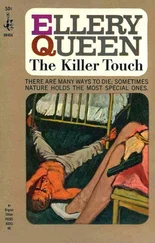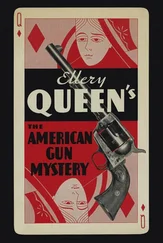Fanny’s melting point had never been very high. She was always brought perilously close to tears by a hungry dog or a sad movie, and she had learned that the best defense was to take some sort of positive action, such as feeding the dog or leaving the movie. Now she went over to Ben and kissed him on the cheek and put an arm around him.
“Ben,” she said, “you dear little devil, I do believe there’s more to you than I suspected. Don’t you feel better for having told me?”
“No, I don’t. I don’t feel better at all.”
“Later you will. Wait and see. Did you bring your sister all the way here from California with you?”
“Certainly. I had to have her near enough to visit once in a while, didn’t I?”
“Is it expensive, keeping her in the hospital?”
“Not very. The hospital is supported by the state; I only have to pay a little extra. If it were expensive, I couldn’t afford it. My parents are dead, which is some more private information I’ve never told you, and they left barely enough to keep me here and her there for a few years if I’m careful.”
“Maybe I could help.”
“I don’t want any help.”
“Well, it’s commendable to be proud and independent and all that, but you mustn’t carry it too far. After we’re married, we’ll have to share things equally.”
“We aren’t going to be married, so forget it.”
“Why not? Don’t you want to?”
“Yes, I do, if you must know!”
“Then what’s the argument about? You can move in with me as soon as it’s done, and maybe for brief periods in the meantime.”
“How do you expect me to get married when I come from a family where mental retardation is likely to crop up in my children?”
“Ben Green, you’re just plain ignorant . Mental retardation isn’t hereditary.”
Ben glared at Fanny with mingled astonishment and hope. “It isn’t?”
“Of course not. It can happen to anyone, any time. Your education has really been neglected.”
“I... don’t want to talk about it any more now.”
“All right. We’ll talk about it later.”
“I wonder if the damn ragout is done.” But Ben’s shoulders seemed to have a new squareness about them. Fan wisely decided it was no time to comment. “Stick the potatoes and see, will you?”
She stuck the potatoes with a fork, and they were nearly done, but not quite.
“Not quite,” she said. “They need about fifteen more minutes. Mm! It smells good. I can hardly wait.”
“It would be nice, while we’re waiting, if we could have another drink.”
“Hereafter, my gin is yours any time you want to share it.”
They had another drink while they stood around in the kitchen waiting for the ragout, and after fifteen minutes Fanny stuck the potatoes again and pronounced them done. Ben got out a couple of plates, and Fanny served at the kitchen table. They had just pulled up to the steamy succulence of potatoes and onions and carrots and bits of steak and bacon when there was a sharp knocking on the hall door; and Fanny, assuming the role of woman of the house, went through the living room and admitted Bartholdi. The latter’s nose, as he entered, quivered.
“Something,” he said, “smells extremely good.”
“It’s Student’s Ragout,” Fanny said. “We were just sitting down to eat. Will you have some?”
“Thanks, but I just stopped in to have a word with Ben, and then I must be on my way.”
“We’ve been expecting you.” Fanny headed for the kitchen, Bartholdi following. “Ben, Captain Bartholdi would like to have a word with you.”
“The trouble with this ragout,” said Ben explosively, “is that it seems to be damn near impossible to eat it! Something or someone is always preventing.”
“Don’t let me interrupt your meal,” Bartholdi said. “You two go right ahead. I’ll pull up a chair and wait.”
He did so, dropping his hat on the floor beside the chair. Ben picked at his ragout as if Bartholdi’s appearance had killed his appetite.
“Are you sure you won’t have some with us?” Fanny said.
“Quite sure.”
“It’s fortunate that you won’t, to tell the truth. We planned to share it with Jay and Farley, and it’s doubtful that there’d be enough for five.”
“It’s doubtful,” Ben said, “that there will even be enough for four. Not that it matters. I suddenly don’t seem to want any.”
“Yes, you do,” Fanny said. “You are going to get a proper meal whether you want it or not. There will be plenty, anyhow. You insisted on putting in the usual amount of onions, which is too much for Jay, and so he’ll probably eat very little.”
“I just left Mr. Miles,” said Bartholdi, “and I’m sure he’s in no mood for eating anything, with onions or without.”
“That leaves only Farley. By the way, where is Farley?”
“He’s across the hall. I met him out back as I was coming in, and asked him to accompany me.”
“Do you think that’s fair? I wasn’t allowed to stay.”
“As for me,” said Ben, “I had no desire to stay. The less I have to do with this thing, the better I like it.”
“Which reminds me,” Bartholdi smiled. “It’s time we were establishing that you had nothing to do with it.”
“That’s already established,” Fanny said. “Ben has finally told me where he went last weekend.”
“Is that so? Suppose he tells me, too.”
“He went to visit his sister.”
“Is that right, Ben?”
“That’s right. In Corinth. She’s in the institution there.”
“She’s a retarded child,” Fanny said.
“I’m sorry, Mr. Green,” Bartholdi said. “However painful it is for you to discuss, you can surely see the necessity.”
“I suppose so.”
“How did you go to Corinth?”
“By bus.”
“What time?”
“The bus left the station at two fifty-five.”
“Can you prove you were at the institution that day?”
“I wasn’t there that day. The bus got in after visiting hours. I went there the next morning.”
“Oh? Where did you spend the night?”
“At the hotel. There’s only one in town.”
“I see. And what time next morning did you visit the institution?”
“Nine o’clock or thereabouts.”
“This can be verified?”
“Sure. There’s a register for visitors. I signed it.”
“You see?” Fanny said triumphantly. “Ben went to visit his sister.”
“Next time I go,” said Ben bitterly, “I’ll hire a brass band and carry a banner.”
Bartholdi, rising to leave, was sympathetic in principle. In practice, however, he held his sympathy in reserve until he was certain, after investigation, that it would not be wasted.
His melting point was considerably higher than Fanny’s.
“Oh!” Ardis Bowers’s mouth made the startled shape of the vowel she had sounded. “It’s Captain Bartholdi, isn’t it?”
“Yes,” said Bartholdi. “I don’t believe we’ve had the pleasure of meeting.”
Ardis, recovering, made it evident by her succeeding expression that the pleasure was not reciprocal. Her position in the doorway suggested an impediment. She did not bother to explain how she had learned his identity, and Bartholdi, for his part, was not sufficiently interested to ask.
“What is it you want, please?” Ardis demanded.
“I was downstairs and, since I was here, I thought I’d have a talk with you and Professor Bowers. May I come in?”
“I’m sure there is nothing Otis and I can tell you. However—”
“Thanks. I appreciate your cooperation.”
Bartholdi entered, and Otis Bowers rose to meet him from a chair under a reading lamp. He was holding a thick book in his hand, the index finger inserted among the pages to mark his place.
Читать дальше












